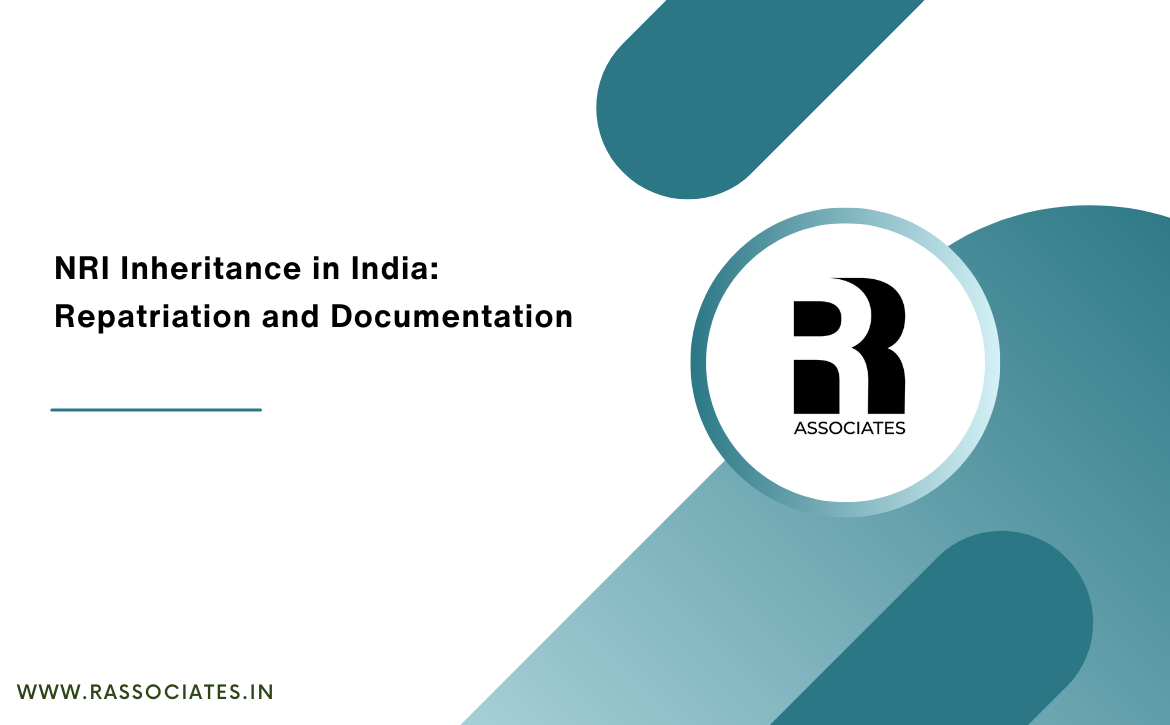
NRI Inheritance in India: Repatriation and Documentation
For many Non-Resident Indians (NRIs), inheriting property or financial assets in India brings a mix of emotional ties and practical challenges. Whether it is real estate in Delhi, shares in Indian companies, or deposits left behind by parents, the next big question is how to legally take these assets abroad?
Foreign Exchange Management Act (FEMA), provide a structured framework for repatriation after inheritance.
One of the most relevant features for NRIs is the USD 1 million annual remittance window, which allows inherited assets to be transferred overseas. However, the process is not automatic. It requires a clear paper trail and approvals where necessary.
The USD 1 Million Window under FEMA
The Reserve Bank of India (RBI), through the FEMA Remittance of Assets Regulations, permits NRIs and Persons of Indian Origin (PIOs) to remit up to USD 1 million per financial year outside India from inherited or acquired assets. This limit applies on a repatriable basis, after payment of applicable taxes.
This facility provides a uniform threshold across asset classes—whether the inheritance is in the form of immovable property, bank deposits, shares, or other financial instruments.
It ensures that an NRI who has received property in Delhi or elsewhere in India can monetize the asset and transfer funds abroad without seeking special RBI approval, as long as the amount stays within the USD 1 million ceiling for that year.
It is important to note:
- The limit is per individual, not per estate. If two siblings inherit jointly, each may avail their own USD 1 million quota.
- The facility can be used annually, which means larger inheritances can be repatriated over multiple years.
- Repatriation beyond the ceiling requires specific approval from the RBI, which is often time-consuming and discretionary.
Documentation for Repatriation of Inherited Assets
Banks in Delhi and across India will not process remittances unless the inheritance is legally and tax-wise clean. Typically, NRIs must prepare a mix of the following documents:
1. Proof of Inheritance
- Will / Probate / Succession Certificate: If the deceased left a will, probate may be required in some cities. In intestate cases (no will), a succession certificate or legal heirship certificate may be necessary.
- Death Certificate which is issued by the municipal authority.
2. Property & Asset Documents
- Title deeds, share certificates, or fixed deposit receipts proving ownership by the deceased.
- Updated encumbrance certificates or no-dues certificates for immovable property.
3. Tax Clearances
- Chartered Accountant’s Certificate (Form 15CA/15CB) confirming that all taxes on capital gains, rental income, or other dues have been discharged.
- Income Tax filings, where applicable.
4. FEMA Compliance
- Application with the bank’s designated Authorised Dealer (AD Bank).
- Declaration of the source of funds and confirmation that remittance is within the FEMA remittance of assets window.
5. Bank Procedures
- A designated NRO (Non-Resident Ordinary) account is usually required to park the inherited funds before remittance.
- Identity and residency proof of the NRI/PIO beneficiary.
Conclusion
For NRIs, inheritance in India is about navigating a regulatory maze with precision. The USD 1 million FEMA window gives a clear, practical route for repatriation after inheritance, but only those who prepare documentation meticulously and respect the legal process can actually use it without stress.
NRIs should not postpone paperwork or treat compliance casually. The cost of delay—whether in probate, tax filings, or bank procedures—is far greater than the effort of doing it right the first time. If you want your NRI inherited property in India to turn into usable funds abroad, think of repatriation as a structured legal project, not an afterthought.




